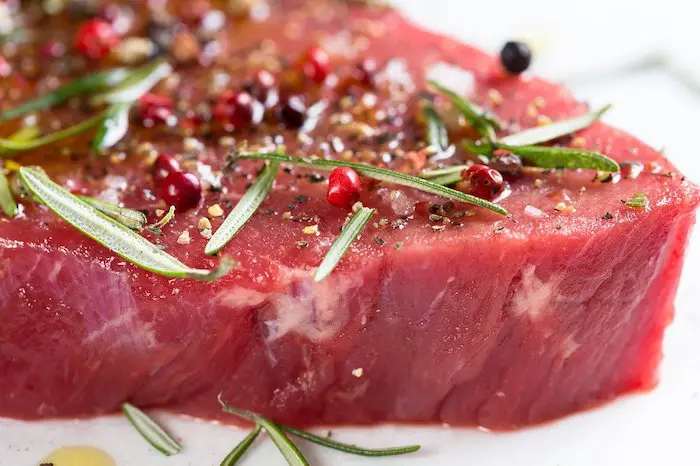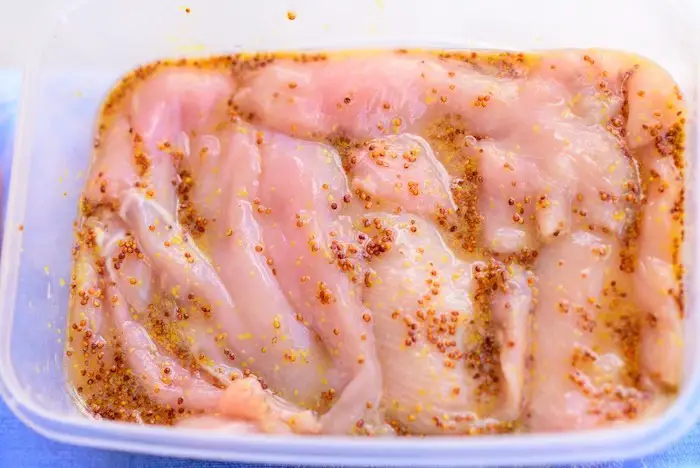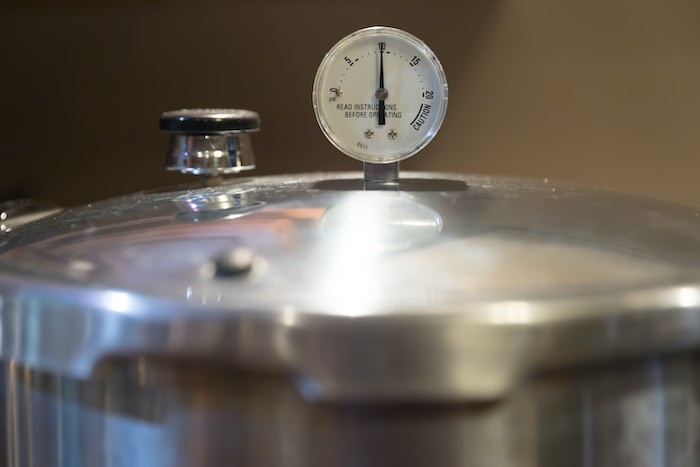Grilling steaks on a summer afternoon is fun, but a lot of us always tend to still make a mistake or two. Although seasoning is one of the most basic aspects of cooking and grilling, this is the area in which we often neglect to do it properly or maybe even do too much, and this ends up messing up with the flavor. In this post, we will be discussing one of the most common faux pas of all as well as the solution for it.
Do you still season meat after marinating? The answer depends on the individual’s personal tastes and preferences. If your marinade already has too much salt and you marinated the meat for quite a long time, it’s strongly recommended that you avoid adding extra seasoning. If the saltiness is not too strong though, you can certainly add some more seasoning to get that perfect taste.
Be careful because seasoning just before grilling can increase the saltiness of the exterior of the meat, and this will make the meat taste too briny. If you intentionally want the exterior to be salty or have some extra texture, you can sprinkle some coarse salt onto it without altering the overall flavor of the meat negatively.
However, be careful when adding any type of seasoning because there is no “Ctrl+Z” with salt nor seasonings. To avoid excess saltiness when you’re unsure of how much seasoning is required, you should try cutting off a small piece of the meat and grilling it, then tasting and deciding whether or not to season the remaining portions of the marinated meat.
Whether or not you should add extra seasoning also depends on how long the meat was marinated for before grilling. If it was in the marinade for just a few minutes, it’s likely that a little bit of seasoning after marinating may be a good idea. However, if it was there for 7 hours, the meat absolutely had enough time to soak in the marinade.
Also, if you must season your meat further and salt just isn’t doing its job like you’d prefer, consider using seasonings that contain black pepper, red chili flakes, cinnamon, cayenne pepper, cumin, and any others that exclude the use of extra salt. It is always better to use table salt and seasonings to adjust the taste later after grilling is completely done.
Excess Seasoning Can Alter the Taste and Texture
Salt and seasonings on meat are important, but excess salt can lead to dehydration as it pulls out moisture from the meat. You need to ensure that you don’t go too crazy with the seasonings, or it can potentially make the meat too dry. Generally, this only happens in extreme excess, but it’s something to keep in mind depending upon the cut of meat you’re using as well as the method of cooking. You can always add seasonings during the cooking process itself if needed, so tread carefully to avoid messing up the food in general.
Common Mistakes to Avoid When Marinating Meat
Having said that, let’s now take a look at some of the common mistakes that one must avoid while marinating the meat.
#1. The Marinade Wasn’t Strong Enough
You let your meat sit with the marinade for so long, and you grilled it with so much patience, so the end result must be delicious, right? What if the flavor is missing? To bring out the maximum flavor in your meat, when assembling your marinade, it’s suggested that you toast the spices slightly, smash the garlic pods, and bruise the herbs to bring out the most flavor possible.
#2. Mixing Too Many Ingredients
While trying to get the most out of your seasonings, make sure you do not go overboard with them because too much of a good thing can turn into a very bad situation. Resist the temptation of turning into a crazy experimenter. Combining horseradish and honey could be disastrous, to say the least.
#3. Not Marinating Your Meat Long Enough
Not marinating enough is another common mistake because proteins need more than just five minutes to absorb all of the flavors properly. You do not have to let them marinate for 24 hours, but at least longer than 30 minutes is required for the flavors to be even remotely absorbed. One of the easiest options is to simply let the meat marinate in the fridge overnight before you plan to cook it, and this will ensure the flavors make their way into the protein successfully.
#4. Not Being Careful with Marinade That’s Had Raw Meat Sitting in It
Not paying particular attention to the type of meat you want to grill can be unsafe for your health when it comes to handling and maintaining proper sanitization. Salmonella is a huge risk with chicken and pork when you handle them raw, and these two types of meat are very prone to bacterial contamination. These germs can easily breed in a marinade that’s held either meat, so we strongly suggest that you toss out any additional marinade in which the meat was resting to avoid accidental re-use which can cause food poisoning or other forms or digestive upset.
#5. Not Having Enough Marinade for the Entire Cooking Process
Not having enough marinade to bast up while the meat is cooking can be a bad thing, so make sure that you whip up enough extra marinade than just what is simply required. This is certainly not the time to skimp on the ingredients. When you let your protein soak up in enough marinade, the meat turns out to be utterly delicious. Having extra on hand lets you keep adding that flavor back in too as the cooking process causes the meat to lose some of its juices along the way.
Tips for Using a Marinade Correctly

The correct ratio of meat to marinade is important or else the meat may not soak up the flavors perfectly. The general rule for this is each pound of meat should equal the usage of about a half-cup of marinade, so a 1-lb. cut of meat would only require ½ cup and a 2-lb. cut of meat would need one full cup of marinade. It’s okay to use a bit more than what’s called for in most cases when it comes to marinades. Marinades vary greatly due to how many different recipes are out there, but there are typically three main components: acids, oils, and seasonings.
If your marinade contains a lot of salt, alcohol, or a lot of acid, those three chemicals will damage your meat if it’s left to marinade in them for too long. For these, you should soak your protein in such a marinade for ideally less than four hours. Marinades containing citrus juices, particularly lemon juice, should only be utilized for a couple of hours or even less. If the food is left in these marinades for too long, it can cause changes to the meat, such as affecting its texture and color.
When marinating meat, always keep the meat inside the refrigerator. If you marinate your meat at around room temperature, this can cause the bacteria in the uncooked meat to multiply far more quickly. There are some recipes that request that you marinate your meat at room temperature, but even when instructed to do so, you should simply increase the overall time your food marinates and keep it inside the refrigerator for optimum food safety practices.
The type of container you use while marinating is also important. It is suggested that you do not marinate any meat in a metal container as the acid in most marinades can potentially react with the metal. In general, it’s best to always use a glass container (like a glass baking dish), a plastic container, or a resealable plastic zipper bag. You will also need to turn the meat occasionally to ensure that all sides are coated evenly.
Using a resealable plastic baggy to marinate meat is the best way to avoid any mess. This also helps in sealing the air out from inside the baggy, so the marinade engulfs the meat completely and brings out the best possible flavor. This airtight and convenient method also facilitates the best possible penetration evenly through all sides of the meat.
The amount of time you’ll need to marinate your meat can vary quite a bit depending upon the type of meat you’re working with, as well as the cut and overall size of the meat. Every type of meat, just like other foods, has an average shelf life even when refrigerated, and that shelf life is not extended by marinating. (A cut of meat’s shelf life also includes the actual day it was purchased and the time spent thawing it, too.) Additionally, frozen meat is unphased by marinades and will not absorb any of what you’re trying to soak it in, so it’s best to avoid trying this shortcut since it won’t get you anywhere.
Related Questions
Should I remove the marinade before grilling?
You should typically, in most recipes and cooking methods, remove the meat from the marinade (and toss the remaining contaminated portions to avoid getting sick) before grilling, sautéing, or stir-frying to prevent flare-ups. This also ensures properly browned meat. If you need to baste the meat further or add a bit more, be sure that you have some additional marinade ready that has not had raw meat sitting in it before cooking.
How do you cook marinated meat without burning it?
The simple solution to this is to quickly remove the meat from the heat if it starts sticking to the base of whatever you’re using to cook it. Using the stovetop method, the general rule is that you must preheat the pan first and season it with some oil. This extra oil will also come in handy as your meat will need some oil as it cooks, and it will also help avoid most sticking and burning.
Should I poke holes in the meat before grilling?
It is suggested that you do not poke any holes in the meat before grilling the meat because this encourages the draining of the meat’s juices during the cooking process (depending upon the cooking method). Also, it’s best that you do not use very thick marinades as they do not penetrate into the meat properly as well.
See Also:
Can Silicone Bakeware Go In A Toaster Oven?
10 Uses For Violet Sea Salt
How Many Tamales Fit In A 20 Quart Steamer?
Are KitchenAid Knives Good? (Explained)


